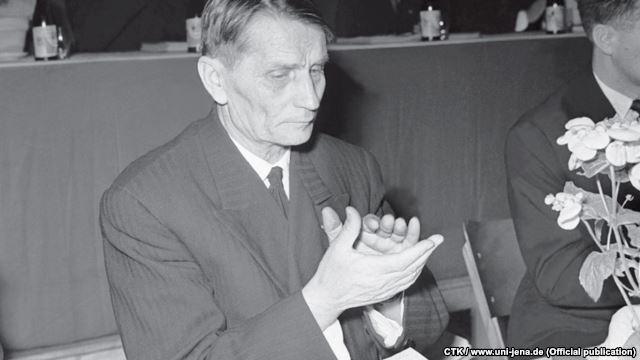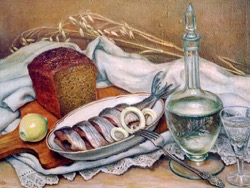
Anna von Bremzen about Soviet cuisine and the funeral of the leader
Anna news. The other day in Corpus publishing house published the book memoirs of Anna von Bremzen “Secrets of Soviet cuisine”. Of course, in the title the word “kitchen” should be understood in two ways. This is not only a gastronomic history of the Soviet period, but “the kitchen” social, political, intricacies of human relations in the twentieth century, in the period when all feelings and reactions were sharpened to the limit. “Ribbon.ru” publishes an excerpt from the book.
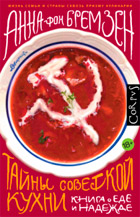
Omladinskih in Soviet circles as a tradition to celebrate on March 5. Although the instant of de-Stalinization has not happened for many a day of Stalin’s death became a historical landmark, and a personal event. It was a symbolic moment when my eyes the veil and the people have become aware of yourself again.
So it was that when I was writing this Chapter, it was March. And mom decided to celebrate the day of death in the spirit of those early dissident gatherings. We turned again to the cookbook, which was five years in love with mom.
One-sixth part of land, eleven time zones, fifteen ethnic republics. The population of under 300 million (by the end of the Empire). That’s what the USSR was. And in the best traditions of the socialist community on all of our multilingual Home was a single Constitution, a single bureaucratic system, one program in mathematics for second grade and one for all kitchen Bible: “the Book about tasty and healthy food”, published in 1939. Of course, first of all it was a comprehensive culinary guide. But moralizing comments, ideological sermons, scientific excursions into educational spirit and bright pages with photos of the Soviet food-processing enterprises and domestic feasts turned it into something more — into a ready-made template for a joyful, abundant, cultural socialist way of life. I was so excited — wanted to return to this socialist milestone (IR)realism.
In my youth, mom learned to cook by the book 1952. It was a cult publication: thicker, better, happier, even more politically charged. Monumental, as the Stalinist neo-Gothic skyscrapers of the late 1940s, in a dark brown cover, as work in social studies. Appearance mattered. He said: cooking is not a trifle. No! Cooking, dear comrades, represented a collective utopian project: self-improvement and acculturation through kitchen labor.
In addition, comparing editions “Books about tasty and healthy food” 1939 and 1952, it was possible to trace the post-war political shifts. In the late thirties was still dominated by the Bolshevik internationalist rhetoric. Internationalism sang, for example, the popular musical Comedy “Circus”, in which there was a song “Broad is my native land”. The film’s heroine, trapeze artist Marion, a white woman who was kicked out of Kansas with an illegitimate child-the mulatto. Marion arrives in Moscow. The land of the Soviets — this is not Kansas! Here the whole country is ready to nurse her baby and to herself was boyfriend — acrobat, one of the guys. In the famous scene international idylls of the famous Jewish actor, Mikhoels Shloime African-American boy sings a lullaby in Yiddish.
This scene is then removed. As the Mikhoels in 1948, at the height of anti-Semitic hysteria, he was killed by order of Stalin. America, in the past polyspermia, polydrug (albeit racist), now demonized as imperialist and opponent in the cold war. Therefore, in the pages of “the Book” 1952 reigns xenophobia. Lost the recipe Jewish treats teiglach disappeared Kalmyk tea (Kalmyks were deported EN masse, accused of collaborating with the Nazis). Canapes, croutons, consomme, all of such rootless-cosmopolitan things were cleaned. As well as sandwiches, corn flakes and ketchup — American delicacies, Mikoyan borrowed during the trip to America.
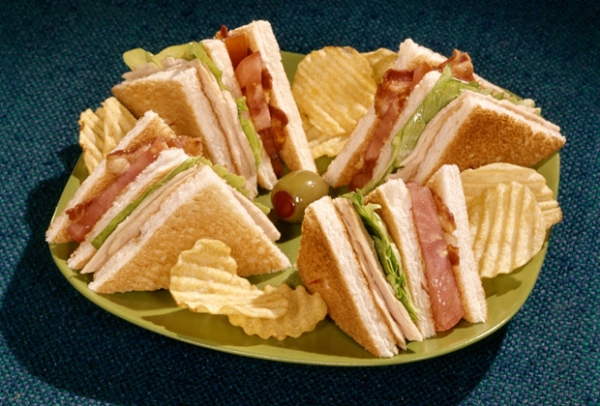
Photo Credit: L. Fritz / ClassicStock / Corbis / East News
In the next reissue, released in August of 1953… surprise! — gone are all the quotes from Stalin. And in 1954 — from Lavrentiy Beria (he was executed in December 1953). Lost my favorite photo of the farm in his name in Azerbaijan. Pig in a Muslim Republic, named after “Stalin’s butcher” (…).
■
Preparing to receive visitors in day of Stalin’s death, mom called me and asked to approve the menu.
She, as always, came up with an inclusive concept, awful historical: decided to reflect the cultural hodgepodge of the late Stalinism. One dish was supposed to symbolize the pomp of official gatherings. We settled on crab salad, decorated in the spirit of the Stalin Baroque, mythical anchovies (in Moscow nobody saw), crab claws and bunches of parsley. And pompous, and eclectic.
Paying tribute to the impoverished intelligentsia youth of the coming generation of the thaw, the mother planned to bake pies supereconomy. The dough without eggs — from flour, water and a pack of margarine in those years was wildly popular.
Now he’s trying to be “national” dishes.
Stalin’s postwar Imperial policy considered national minorities as younger brothers of the great Russian people (and at times — and as his enemies). And although “the Book” 1952 graciously included some typical dishes of the republics, they are presented as part of the common Soviet Canon. The recipe of Ukrainian borsch, kharcho Georgian and Armenian dolma is often given without reference to their national roots.
Mom called the next day and suddenly announced officially:
— I decided that the national of the Republic will be… chanakhi!
— No! That’s Stalin’s favorite dish!
“Oh,” mom said and hung up. Then he called back.
But I already bought a lamb, — she mumbled. She also bought mini eggplants, ripe tomatoes, peppers and lots of cilantro — in short, all the ingredients for a delicious juicy Georgian stew in pots called chanakhi.
— But, mother, ‘cried I,’ after all, it is strange to celebrate deliverance from Stalin his favorite food.
— And you’re absolutely sure that this was his favorite dish? — insinuating she asked.
With a sigh I agreed to check again. Hung up and poured himself a strong Spanish brandy. Reluctantly he returned to his records. Here is the testimony of the writer of the Yugoslav Communist Milovan of dilasa about the meeting with the Chief in the thirties: “Stalin absorbed the amount of food is huge even for a bigger person. Most of these were meat dishes — here we felt his highland origin.” And describing another meeting, in 1948, dzhilas sighed: “Now he has shown such voracity, as if afraid that he will not receive favorite dish”.
Stalin chrevougodnik mainly at Kuntsevo dacha, not far from the places where I grew up, in the company of the same authorized person: Beria, Khrushchev, Molotov and Mikoyan. On holiday feasts invited suddenly (it was not), sat up on them late.
Night “dinners” characterized by simplicity, testified that the Owner did not love official Stalin-era luxury. A long table on massive carved legs stood in a suburban dining room, where decorations were only the fireplace and a huge Persian carpet. The waiters, under the leadership of chubby Valya — faithful housekeeper and possible mistress of Stalin is put on one end of the table food on a heavy silver platters with lids and disappeared. The soups were on a separate table. Torturers and murderers came and were treated. Among appetizers could be the favorite Stalin Danube herring, always salted, and sliced. The soups were traditional Russian — ear and daily soup with meat and cabbage. For the main course — roasted lamb chops, quail and invariably a lot of fish dishes. It was the Soviet-Eurasian fusion, country kitchen: slovyanohirska.
I took a SIP of his brandy Carlos I.
At the cottage the Owner was drinking a light Georgian wine — always with ice cold water from the carafe favorite high — and watched others drink vodka. He loved to ask include: “How many outside degrees?” In case of a wrong answer they had to drink as many shots of vodka, how many degrees they were wrong. In Russia, the monarchs always loved to joke at the table. The assemblies of Peter the Great from giant pies jumped dwarfs. Ivan the terrible, the idol of Stalin, the peers sent out-of-favor boyars cups of poisoned wine and watched them die. Stalin made a fat little man Khrushchev to dance the hopak and laughed when his henchmen pinned Nikitin back on a round piece of paper with the word “x**”. Practical Mikoyan admitted that they took with them a spare set of pants: a favorite mealtime entertainment was put on a chair tomato (by the way, with a cottage garden). In the middle of this merry menagerie Stalin sipped the wine, and the guests were forced to drink a lot — as Mikoyan wrote, “apparently, for our tongues untied”. And these people were kept in the bloody hands of the fate of one-sixth part of the world.
True to pedantic foodie Mikoyan has left us the best memories about the culinary preferences of the Leader. Stalin, obviously, liked to invent and order the chefs new dishes. A particular favorite was some kind of “not the soup, not the second”…
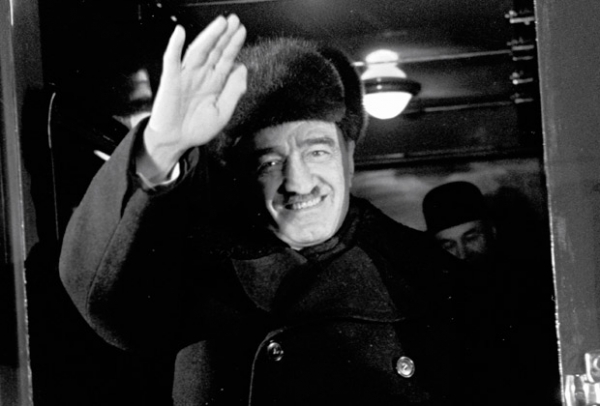
Photo: V. Noskov / RIA Novosti
6256 11.12.1964 Chairman of the Presidium of the Supreme Soviet of the USSR Anastas Ivanovich Mikoyan was leaving from Moscow to Finland on an unofficial visit. V. Noskov/RIA Novosti
“Yeah,” I told myself.
“In a big pot, writes Mikoyan — mixed eggplant, tomatoes, potatoes, black pepper, Bay leaves, slices of lean lamb meat… This dish was served hot… There was added the cilantro… Stalin gave it the name of “Aragvi””.
No doubt it could not be: Mikoyan describes a classic Georgian stew chanakhi. Probably, Stalin named him after the river in Georgia or restaurant in Moscow, and maybe in honor of both. I thought about Mikoyan. Many years seemed unsinkable, 1953-Moo old comrade Stalin, previously people’s Commissar of the food industry, and now the Deputy Chairman of the Council of Ministers, at last fell into disgrace. The leader took it apart and Molotov at the Plenum of the Central Committee, and then they were excommunicated from Kuntsevskaya “lunch”. Mikoyan believed that his days are numbered. His son recalls that his father kept in his Desk a gun: instant death was preferable to arrest, which would have dragged the rest of his big Armenian family. Anastas Ivanovich was a prudent careerist. And yet, sitting at the table with a glass in hand, I pitied him.
My thoughts were interrupted by the telephone.
— I solved the dilemma with chanakhi! — proudly announced mom. — Before the death of Stalin because he was going to have a genocide in Georgia?
— Well, Yes. It seems, Yes, — I admitted, puzzled. This unfulfilled campaign known less than anti-Semitic. But Stalin actually seemed to be preparing ethnic cleansing among their Caucasian countrymen. Namely, he intended to punish the Mingrelians are a people proud, whose son was Beriah. It could be an indirect attack on Beria.
— Now! — exclaimed the mother. — We can apply also in memory of the victims of the Georgians!
■
Death, of Stalin! — boomed Kate, when I spilled vodka. — Clink!
Inna:
But, Katyusha, to cheer for the dead — a bad omen!
— Exactly! Clink for the fact that the bastard rotted in the grave!
Come March 5. In the window of her mother’s apartment in Queens pouring rain, and we celebrate the day when Stalin’s candle went out. Kate, Musya, Inna — mom’s gathered, and eighty-year-old ladies. They’re digging through with forks spectacular crab salad, a dish which stands among the vases with fruits and bottles “Soviet” pop. The latter is Light — thin and pale. Long ago it was the famous Moscow beauty, and she stayed Joseph Brodsky, when he came from Leningrad. I tend to this thought.
— I went to the funeral of Stalin! — laughs Light.
— Meshugene (crazy — Yiddish), — Clucks Katia, spinning finger to his temple. — There people were dying!
When the funeral procession began to stampede and trample the grieving began, the Light jumped at his funeral wreath from the school and lasted all the way to the Columned hall.
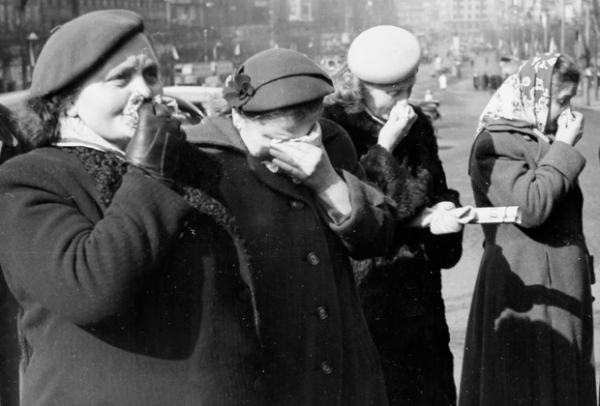
Photo: “Light” / “Kommersant”
1/3
— Lamb seems harsh? says Musya, my mother’s trying chanakhi memory of the victims of the Georgians.
I, crowning insult by insult, gleefully celebrate the role chanakhi in Stalin’s holiday feasts. Mother burns me with a glance and is sent to the kitchen, shaking his head.
— We only have so many girls, says Inna. — Arrests, repression, denunciations… And still managed to remain people.
Mom returns with the pies poor intelligentsia.
— Well, enough already about Stalin, — she says. Let’s move on to “thaw”?




